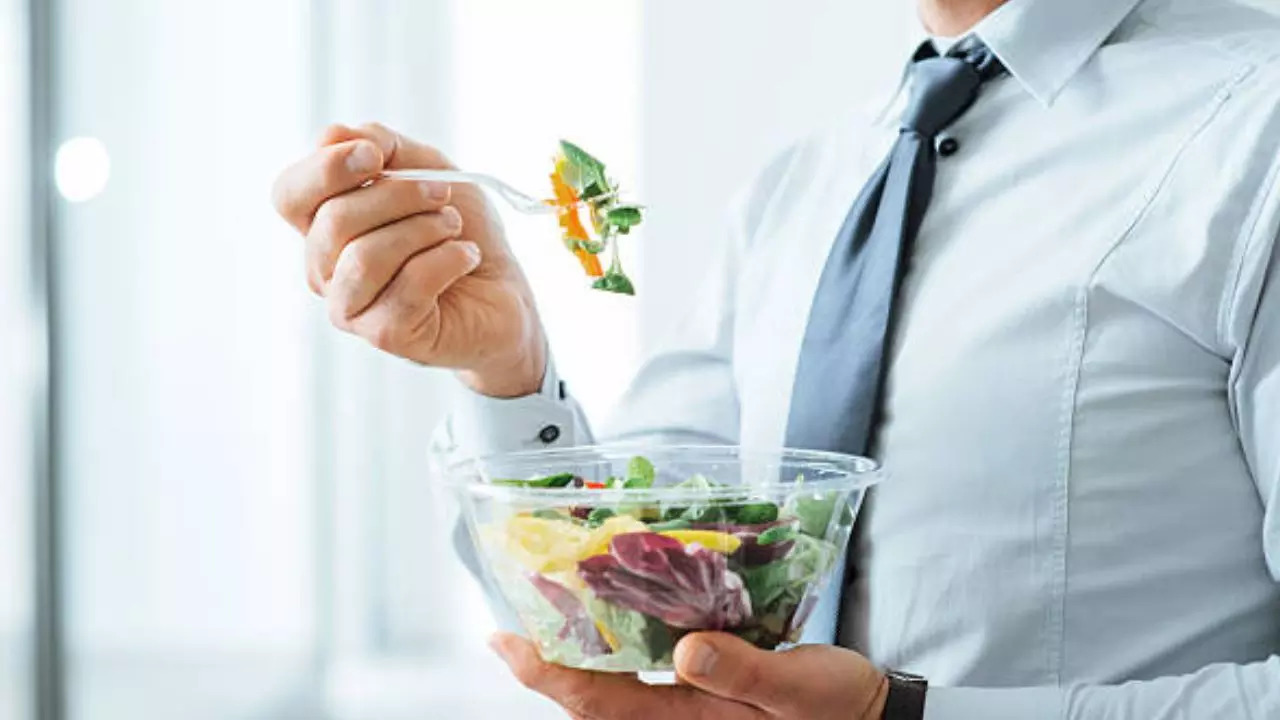What should you eat and what should you avoid when you have kidney stones? Experts answer
Kidney stones, painful deposits in the kidneys, require specific dietary adjustments for management and prevention. We got in touch with a health expert who explains the important dietary changes that need to be followed, including drinking plenty of water, eating calcium-rich foods and reducing intake of sodium, oxalate and animal protein. Read on to know more.

What should you eat if you have kidney stones? Expert Answers (Image Courtesy: iStock)
Kidney stoneHard deposits of minerals and salts that form in the kidneys can cause severe pain and discomfort. These stones are of different types, including calcium oxalate, uric acid, calcium phosphate, and struvite, each of which requires specific dietary considerations. While medical treatment is often necessary, dietary adjustments play an important role in managing and preventing kidney stones. Understanding what to eat and what to avoid is essential for effective stone management.
To provide expert insight, we consulted Dr. Rajeev Sood, Chairman of Urology and Renal Transplantation at Marengo Asia Hospital, Gurugram. He shares valuable information about dietary changes based on the type of kidney stones and explains how these adjustments can help manage your condition.
Types of kidney stones
According to Dr. Sood, there are different forms of kidney stones, and dietary recommendations vary depending on the type:
– Calcium oxalate stones: The most common type, formed when calcium combines with oxalate in the urine.
– Calcium phosphate stones: These stones develop in alkaline urine.
– Uric acid stones: These form when urine is highly acidic.
– Struvite stones: often develop due to infection.
– Cystine stones: Rare and caused by a genetic disorder.
What to include in your diet?
Dr. Sood recommends including the following foods:
1. Water: Staying hydrated is very important to keep the urine diluted and prevent kidney stones. Drink 8 to 10 glasses of water every day to keep the urine diluted and reduce the risk of stone formation.
2. Citrus fruits: Fruits like grapefruits, oranges and lemons are rich in citrate, which helps prevent stone formation by binding calcium in the urine.
3. Calcium-rich foods: Foods such as dairy products, cheese, yogurt and fortified plant-based milk are important for managing calcium oxalate stones. Adequate calcium intake helps bind oxalate in the intestines, reducing the risk of stone formation.
4. Low oxalate foods: Include foods like peas, apples, bananas, cherries, cauliflower, cucumbers and tomatoes in your diet. These help reduce oxalate levels in urine and prevent calcium oxalate stones.
5. High-fibre foods: Vegetables, pulses and whole grains provide fibre, which helps reduce calcium absorption and reduces the risk of stone formation.
6. Plant-based proteins: Pulses, beans and tofu are good alternatives to animal proteins. They do not raise uric acid levels or reduce urinary citrate, which helps prevent stones.
What foods to avoid
Dr. Sood recommends avoiding the following foods:
1. High-sodium foods: Excessive sodium can increase calcium in the urine, which can lead to stone formation. Limit your intake of processed foods, canned soups, salty snacks, and fast food.
2. Foods high in oxalate: Spinach, rhubarb, beet greens, almonds, chocolate, tea and soy products may increase the risk of calcium oxalate stones. Reducing these may help prevent stone formation.
3. Animal proteins: Red meat, poultry, eggs and shellfish can increase uric acid levels and decrease urinary citrate, which can lead to kidney stones. Moderation is key.
4. Sweet foods and drinks: High sugar intake can increase calcium excretion and reduce urine volume, increasing the risk of stones.
5. Coffee: Excessive caffeine from coffee, tea and energy drinks can cause dehydration and increase calcium levels in the urine. Reducing caffeine helps maintain proper hydration and reduce calcium levels.
expert advice
1. Moderation: Even healthy foods can contribute to stone formation if eaten in excess. Moderation is key.
2. Gradual changes: Implement gradual changes to the diet to allow your body to adjust and ensure lasting habits.
3. Regular monitoring: Work closely with your doctor to monitor your condition and adjust your diet as needed based on the type of kidney stones you have.
Get the latest news live on Times Now, along with breaking news and top headlines on diet, health and more from around the world.


